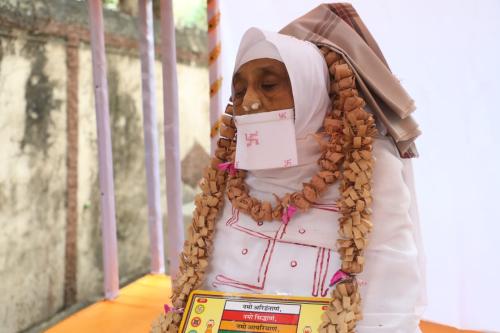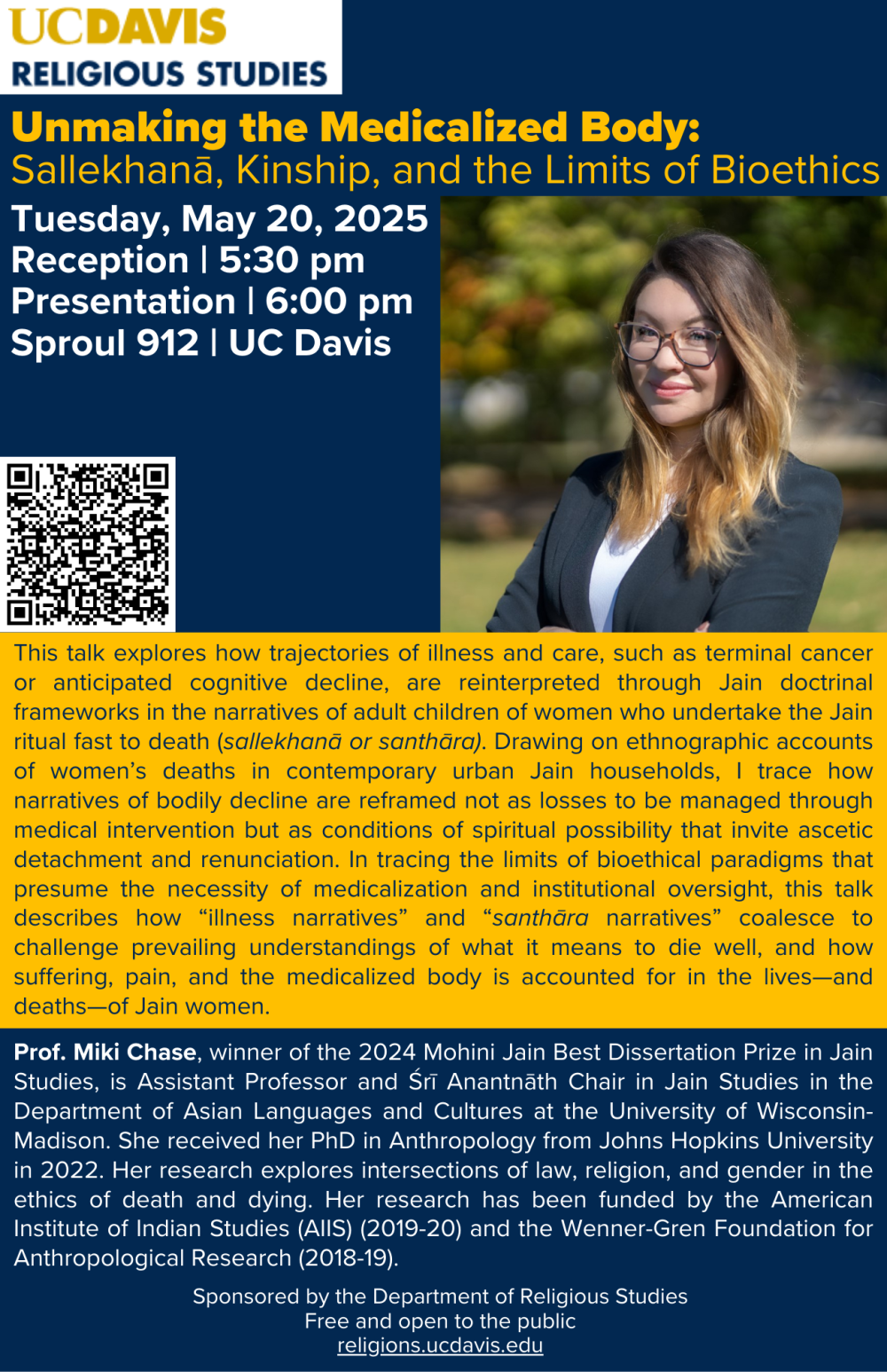Tuesday, May 20, 2025
Reception | 5:30 pm
Presentation | 6:00 pm
Sproul 912 | UC Davis

This talk explores how trajectories of illness and care, such as terminal cancer or anticipated cognitive decline, are reinterpreted through Jain doctrinal frameworks in the narratives of adult children of women who undertake the Jain ritual fast to death (sallekhanā or santhāra). Drawing on ethnographic accounts of women’s deaths in contemporary urban Jain households, I trace how narratives of bodily decline are reframed not as losses to be managed through medical intervention but as conditions of spiritual possibility that invite ascetic detachment and renunciation. Rather than resisting biomedical or bioethical paradigms outright, these narratives inhabit a complex zone of overlap where cognitive clarity is both a medical and religious ideal; the attenuation of pain is karmically elevated rather than clinically managed; and the logic of institutionalized care is subtly displaced not by the absence of obligation but by alternate forms of care. In tracing the limits of bioethical paradigms that presume the necessity of medicalization and institutional oversight, this talk describes how “illness narratives” and “santhāra narratives” coalesce to challenge prevailing understandings of what it means to die well, and how suffering, pain, and the medicalized body is accounted for in the lives—and deaths—of Jain women.
Dr. Miki Chase is Assistant Professor and Śrī Anantnāth Chair in Jain Studies in the Department of Asian Languages and Cultures at the University of Wisconsin-Madison. She received her PhD in Anthropology from Johns Hopkins University in 2022. Her research explores intersections of law, religion, and gender in the ethics of death and dying. Dr. Chase’s current book project examines women’s social negotiations of the ascetic disposition in the Jain ritual fast unto death, ethnographically tracing gendered norms through which Jain women embody doctrinal ideals and attending to the complexities of urban domestic life in India, medicalization of death, and shifting legal terrain. Her research has been funded by the American Institute of Indian Studies (AIIS) (2019-20) and the Wenner-Gren Foundation for Anthropological Research (2018-19).

